Category: SS Lesson – New Testament
-
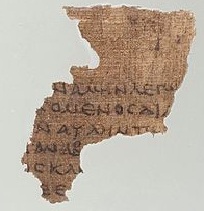
NT Sunday School Lesson 14: Matthew 18; Luke 10
Matthew 18 Verses 1-4: Why do the disciples ask the question that they pose in verse 1? What does it suggest about their understanding of Jesus’ message? What do you make of the fact that they are arguing about who shall be first so shortly after Jesus has talked about his coming death (Matthew 17:22)?…
-
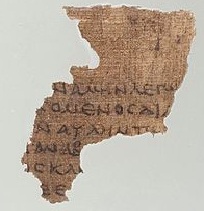
NT Sunday School Lesson 13: Matthew 15:21-17:13
There are a number of stories in this reading, and they appear not to be given to us in a haphazard way. There is a natural progression from one to the other: (1) Jesus heals the Canaanite woman’s daughter (Matthew 15:21-28). (2) He heals many and multitudes come to him (Matthew 15: 29-31). (3) He…
-
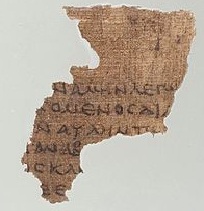
NT Sunday School Lesson 12: John 5-6; Mark 6:30-44; Matthew:14:22-33
As is almost always the case, there is far more here than we can cover in one lesson. These materials will focus on John 5, but I will also include some questions on John 6. John 5 Some have suggested that the gospel of John is partially constructed around seven wondrous works or miracles. (I…
-
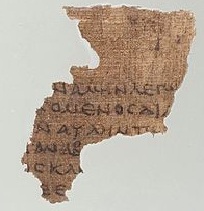
NT Sunday School Lesson 11: Matthew 13
A reminder that I post regularly for those who are new to these notes: These are study notes for the lesson material, not notes for creating lessons. I assume that a person would use these over several days, perhaps a week, of study. Of course someone studying the lessons will also be able to create…
-
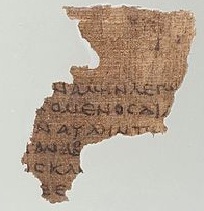
NT Sunday School Lesson 10 (JF) : Matthew 11:28-30; 12:1-13; Luke 7:36-50; 13:10-17
Matthew 11 Verse 28: What does it mean to come to Christ? Has he already told us how we can do that in readings from some of the previous lessons? The word translated “labor” means “wearying labor.” The phrase “heavy laden” translates a Greek word that means “weighed down.” What wearying, taxing work does Christ…
-

NT Sunday School Lesson 9: Matthew 6-7
As is usually the case, there is a lot of material to cover in this lesson, but the material in these chapters is so important that it would be a shame to focus on only part of it. So I will focus on the Lord’s prayer (Matthew 6:5-15), but I will also provide notes for…
-

NT Sunday School Lesson 8: Matthew 5
The lesson this week picks out the first part of a longer sermon. Matthew 5-7 give us Jesus’ Sermon on the Mount. Even if preparing for only the Sunday School lesson, it is probably best to read the entire sermon to see the context of this part. At the time of Jesus there seems to…
-

NT Sunday School Lesson 7: Mark 1-2; 4:35-41; 5; Luke 7:1-17
For purposes of this lesson, I take Luke 7:1-17 to be a supplement to the miracle stories we read in the material from Mark. So I will make my notes and questions on Mark, assuming that reading and thinking about Luke will be appropriate to them. As usual, I offer the reminder that these are…
-
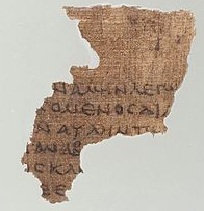
NT Sunday School Lesson 6: Luke 4:14-32; 5; 6:12-16; Matthew 10
Before we look at some individual verses from this lesson, consider the overall structure of Luke’s narrative and think about how Luke’s story of the calling of the Twelve compares to Matthew’s. I have put in bold the parts that the lesson focuses on, but I have outlined all four chapters so that you can…
-

NT Sunday School Lesson 5: John 3-4
There is a tremendous amount of material in this lesson, more than I can deal with in a few pages. So I have shortened my study questions by focusing on John 3:1-10. Verse 1: The name “Nicodemus” means “conqueror,” and it was a common name. We know little about Nicodemus. We know that he was…
-

NT Sunday School Lesson 4: Matthew 3-4; John 1:35-51
Matthew 3 Verses 1-2: What function did the herald of a king serve in ancient times? Why did kings need heralds? Is John the herald of a king? Why does this King need a herald? Compare John’s message to Jesus’s message in Matthew 4:17. Why do you think Matthew uses almost exactly the same words…
-

NT Sunday School Lesson 3: Luke 2; Matthew 2
Matthew 2 Verse 1: Who were the wise men? The phrase “wise men” is a somewhat odd translation of the Greek word magoi, “astrologers.” It is because of this word that sometimes we refer to the wise men as “magi.” We get the word “magician” from magoi. “The east” may refer to Mesopotamia, the center…
-

NT Sunday School Lesson 1: Isaiah 61:1-3; Luke 3:4-11 (Joseph Smith Translation); John 1:1-14; John 20:31
Before I offer the study questions for this lesson, let me voice my objection to the format of our lesson manuals. They treat the Gospels as if the best way to understand them is to harmonize them, as if they are each histories of the life of Jesus rather than four different testimonies—for different audiences…
